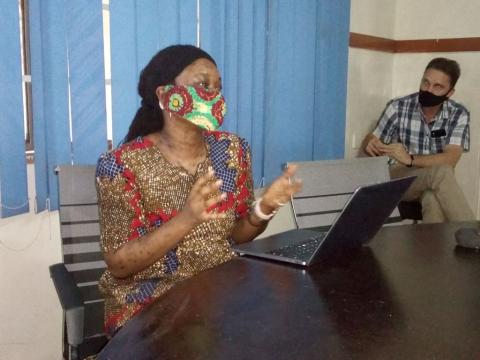By Mohamed Jaward Nyallay
The latest Afrobarometer survey has revealed that 74% of Sierra Leoneans say the government is doing “fairly well” or “very well” in addressing the country’s educational needs. This rating is significantly higher than the 2015 score, when just 38% of respondents believed that the government was handling educational well.
The Afrobarometer survey is a pan-African, non- partisan perception based survey that is done through partner organizations across 38 countries on the continent. The survey, which started in 1999, provides data on good governance and quality of life, among other indicators.
The country partner in Sierra Leone for this latest survey is the think tank, Institute for Governance Reform (IGR).
The revelation comes as a boost to the government’s Free Quality Education policy which was introduced by President Julius Maada Bio when he took office in 2018.
Data from the report also showed that 73% of the respondents also said they had either benefitted directly or indirectly from the policy.
Despite the overwhelming approval of how government has dealt with education, opinions are completely far apart in opposition and government strongholds across the country about whether the quality of education has really improved as a result of the FQE policy.
In the Southern region 73% of the people said it has increased, while 72% in the Eastern region believe same. In the Western Area barely 44% agree whiles in the North only 34% agree that the quality of education had improved.
“It almost follows the voting pattern with less approval rating as you go to these different regions,” Dr Fredline M’Cormack-Haile, Research and Policy Director at IGR, said at a press briefing launching the report on Thursday, July 30.
“Quality can mean different things from one region to another; if you go to a school in the South and they now have two qualified teachers in addition to those they had last year, that could mean quality for them. Or if all the NGOs working on Education are now focused in working in the South and East, that could mean less quality for those in the North,” Data and Communications Manager at IGR, Joel Abdulai Kallon, added.
The report also showed that for the first time since the survey has been conducted in Sierra Leone, Education is not the most important problem citizens are worried about, Dr M’Cormak-Haile said.
Education fell second with 38%, among the top 10 problems citizens think government should address. At the top is food shortage/famine, at 40%.
Corruption in service delivery across public schools has also fallen; only two in ten people, which is 20% of the respondents, reported that they had paid a bribe to access service in public schools in the last one year. In 2018 the figure for this indicator was 33% and in 2015 20%.
The country’s anti-graft body has led a massive clampdown on school authorities and pupils engaged in examination malpractice and other forms of corruption in the last two years.
A number of teachers/principals are either paying fines or facing trial for various corruption offences, according to reports.
IGR say this research has already been shared with the Ministry of Basic and Senior Secondary Education and other policy stakeholders.
Dr M’Cormack-Haile described the study as more than a perception survey. “This survey is about life experiences, it is not just about perception,” she said.
In the coming months, the think tank say more commissioned survey data from Afrobarometer will be launched, which will focus on other sectors.
Copyright © 2020 Politico Online








